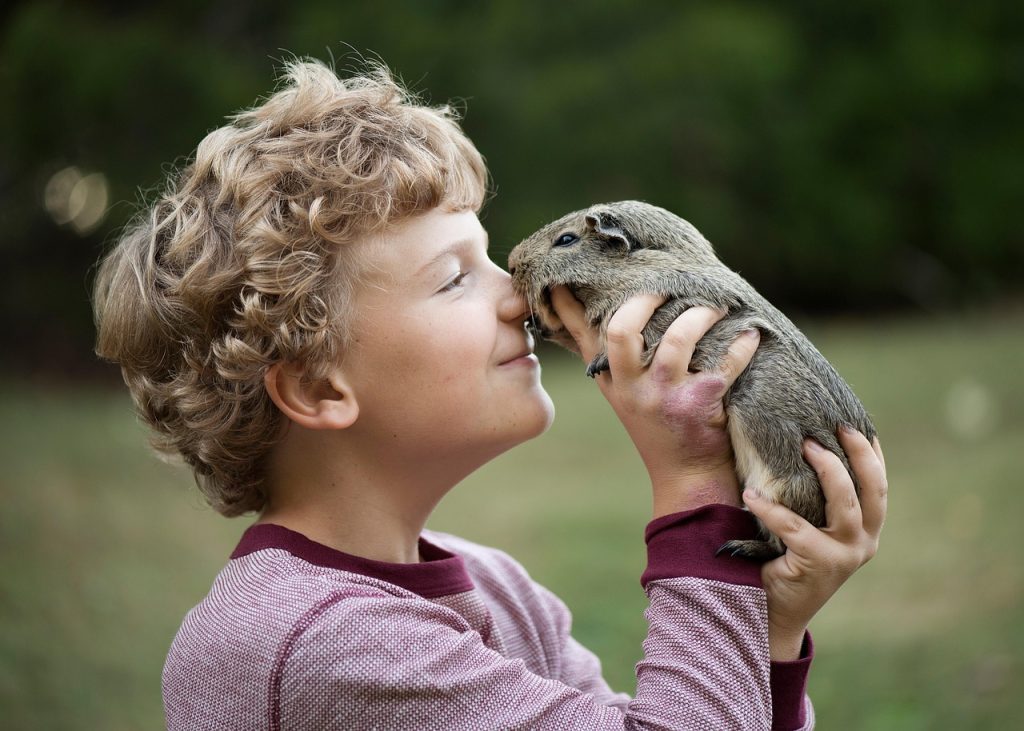
Choosing a small pet can be a rewarding experience, bringing joy and companionship into your life. However, it’s essential to make an informed decision to ensure that both you and your new pet are happy. Small pets, ranging from hamsters and guinea pigs to reptiles and birds, each have unique needs and characteristics. This article will provide you with top tips for choosing your perfect small pet, helping you make a choice that aligns with your lifestyle, expectations, and capabilities.
Understanding Different Types of Small Pets
Before choosing a small pet, it’s crucial to understand the different types of small animals available and what they entail regarding care, space, and time commitment.
Rodents
Rodents, such as hamsters, mice, and guinea pigs, are popular small pets due to their manageable size and engaging personalities. They typically require cages with plenty of space and enrichment items like wheels or tunnels to keep them entertained.
Rabbits
Rabbits are larger than most small pets and require more space. They are social animals and thrive when they have the company of another rabbit. They need a diet rich in hay, fresh vegetables, and specialized pellets.
Birds
Birds like parakeets and canaries can be enchanting pets. They require spacious cages and mental stimulation through toys and interaction. Some birds also enjoy learning tricks and being trained.
Reptiles
Reptiles such as turtles, lizards, and snakes offer a unique pet experience. They have specific habitat needs, including temperature control, lighting, and humidity. Reptiles can be less interactive but fascinating to observe.
Fish
Fish, while not typically thought of as interactive pets, can provide a serene and beautiful presence in a home. They require tanks with proper filtration and a balanced aquatic environment.
Consider Your Lifestyle
One of the most critical factors in choosing a small pet is your lifestyle. Your daily routine, work schedule, and social activities can significantly impact the type of pet that would be a good fit for you.
Time Commitment
Consider how much time you can realistically dedicate to pet care. Some small pets, like rodents and fish, require less daily interaction, while others, like rabbits or birds, need more attention and socialization.
Space Availability
Evaluate the space you have available in your home. Small pets like hamsters and mice don’t need much room, but rabbits and some birds require larger enclosures or even free space to roam.
Allergies and Sensitivities
If you or someone in your household has allergies, this could affect your choice. Some people are allergic to fur or feathers, and in such cases, reptiles or fish might be a better option.
Assessing Your Resources
Owning a small pet involves both initial and ongoing costs. Ensure that you have the necessary resources to provide for your pet’s needs.
Financial Considerations
The cost of a small pet can vary widely. Consider not only the purchase price but also the cost of food, habitat, and veterinary care. Some pets, like reptiles, may require specialized equipment that can be costly.
Veterinary Care
All pets require some level of veterinary care. Research local veterinarians who specialize in the type of pet you’re considering, as not all vets have expertise in exotic animals or birds.
Understanding Behavior and Temperament
Each type of small pet has its behavior and temperament. Understanding these can help you choose a pet that fits well with your household dynamics.
Social Interaction
Some pets, like guinea pigs and rabbits, are very social and enjoy interaction with humans and other animals. Others, like some reptiles, are more solitary and don’t require as much human interaction.
Activity Level
Consider the pet’s activity level. Birds and rodents can be quite active and require plenty of stimulation, while reptiles might be more sedentary, fitting better into a quieter household.
Researching Breeds and Species
Once you have a general idea of the type of small pet you want, research different breeds or species to find one that matches your preferences and lifestyle.
Adaptability and Lifespan
Different breeds and species have varying adaptability to environments and different lifespans. Ensure you are prepared for the commitment of time and care over the pet’s life.
Compatibility with Children or Other Pets
If you have children or other pets, consider how your new small pet will fit into the existing family dynamic. Some pets are more tolerant of handling and can be great companions for children.
Preparing Your Home
Before bringing your new pet home, it’s important to prepare your living space to ensure a safe and welcoming environment.
Setting Up the Habitat
Ensure that your pet’s habitat is ready before they arrive. This includes setting up cages, tanks, or enclosures with all necessary amenities like bedding, hiding spots, and food dishes.
Safety Precautions
Make sure your home is pet-proofed. This includes securing electrical cords, removing toxic plants, and ensuring that other pets cannot access the new pet’s space.
Conclusion
Choosing the perfect small pet is a decision that requires thoughtful consideration and planning. By understanding the different types of small pets, considering your lifestyle, assessing your resources, and researching breeds, you can make a well-informed choice. Preparing your home ahead of time ensures a smooth transition for your new companion. With these tips in mind, you’ll be well on your way to finding the small pet that will bring joy and companionship into your life.
“`
#ChatGPT assisted in the creation of this article.








